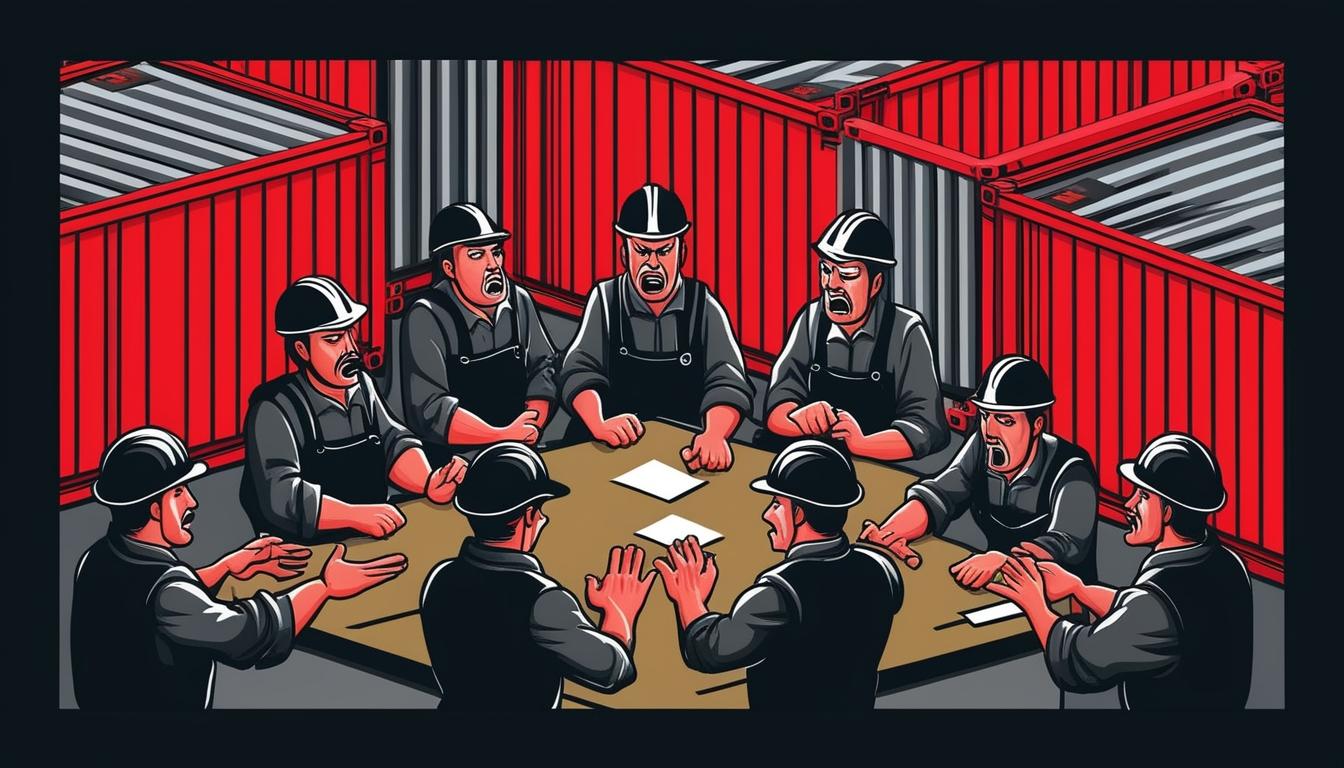Negotiations aimed at averting a potential strike by dockworkers at the Port of New York and New Jersey have resumed, with both parties under significant pressure to reach a new agreement by 15 January. The ongoing discussions follow a brief strike in early October, which involved around 45,000 members of the International Longshoremen's Association (ILA). This stoppage lasted three days before a provisional wage increase agreement was struck, allowing for a substantial 61% hike over the next six years, thereby raising the earnings of the highest-paid workers to approximately $63 per hour.
Despite the resolution on wage issues, the parties have yet to reach a consensus over the contentious topic of port automation, which has remained unresolved since the last talks. The urgency for a resolution is compounded by the potential economic ramifications should a strike occur, an event that could happen shortly before President Joe Biden exits office, at which point president-elect Donald Trump has expressed his support for the union's stance against automation.
Rachel Shames, vice president of procurement at logistics firm CV International, outlined the broader implications of a potential strike, stating, “Ocean freight rates are up ahead of the potential labor disruption, and carriers have announced surcharges that go into effect as early as January 10.” These surcharges may range between $1,000 and $3,000 per twenty-foot equivalent unit (FEU) as shippers anticipate impacts on cargo transport via the East and Gulf Coast ports. The next few weeks are especially critical, with looming new import tariffs following the presidential inauguration and the start of the Lunar New Year holiday, which traditionally leads to factory shutdowns in China and other countries.
In a related observation, Dennis Monts, COO of PayCargo, remarked on the significant repercussions a strike could have on the U.S. economy and supply chains. The issues surrounding automation are particularly notable, as the union has raised concerns about job losses in the wake of technological advancements at the ports. Trump has publicly aligned himself with the union's concerns, asserting on his Truth Social platform that the savings derived from automation do not justify the job losses it may cause.
The divide among political figures is apparent, with some in Trump's circle advocating for technological integration, arguing that it is essential for improved efficiency in port operations. Meanwhile, Congressional Republicans have urged President Biden to consider invoking the Taft-Hartley Act to bring union dockworkers back to their posts in the event of a strike.
As the deadline approaches, supply chain executives are taking preemptive measures. Jess Dankert, vice president for supply chain at the Retail Industry Leaders Association, described how businesses are responding: “Companies have accelerated some imports, delayed others, and diverted some to West Coast ports” in anticipation of possible disruptions resulting from a strike.
With both sides in negotiations and various stakeholders watching closely, the outcome of these discussions will significantly affect industries reliant on imports and overall economic stability as businesses adapt to the ever-evolving landscape of freight handling and port operations.
Source: Noah Wire Services
